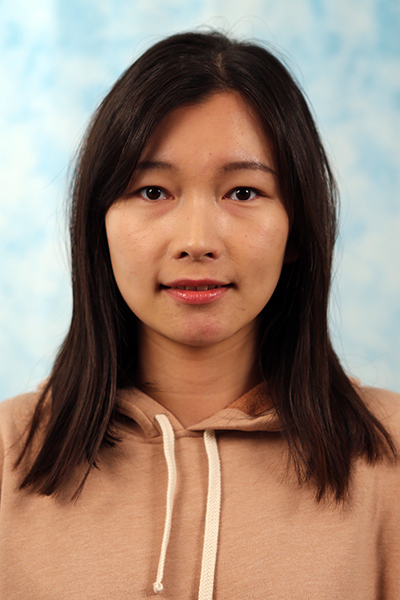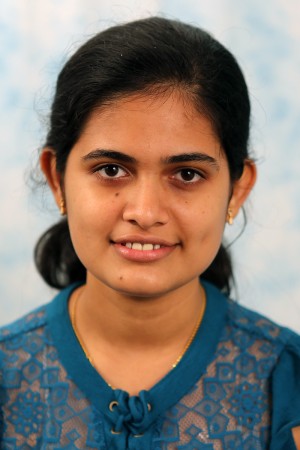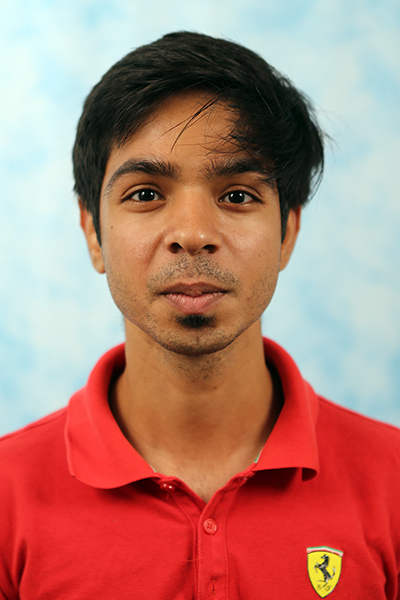Wenxuan Zhou – MSR Thesis Talk
Title: Environment Generalization in Deep Reinforcement Learning Abstract: A key challenge in deep reinforcement learning (RL) is environment generalization: a policy trained to solve a task in one environment often fails to solve the same task in a slightly different test environment. In this work, we propose the ``Environment-Probing'' Interaction (EPI) policy, which allows the agent [...]
Abhijat Biswas – MSR Thesis Talk
Title: Human Torso Pose Forecasting for the Real World Abstract: Anticipatory human intent modeling is important for robots operating alongside humans in dynamic or crowded environments. Humans often telegraph intent through posture cues, such as torso or head cues. In this paper, we describe a computationally lightweight approach to human torso pose recovery and forecasting [...]
Carnegie Mellon University
Anjana Kakecochi Nellithimaru – MSR Thesis Talk
Title: Object-level visual SLAM for plant modeling Abstract: A 3D model that can capture the finer details of the plant structure as well as the overall field statistics, plays an important role in automating agriculture. However, modeling and mapping an agricultural field is challenging due to dynamics, illumination conditions and limited texture inherent in an outdoor environment. We propose a pipeline that combines the recent [...]
Carnegie Mellon University
MSR Thesis Talk – Aman Khurana
Title: Behavior planning at roundabouts About the talk: Roundabouts or traffic circles represent a significant portion of unsignalized intersections commonly found in urban and rural roads and pose a specific challenge for autonomous or self-driving cars. In this work, we present model-free techniques that allow a self-driving car to navigate a roundabout safely. We [...]
Arpita Routray – MSR Thesis Talk
Title: Towards retinal membrane peeling with a handheld robotic instrument Abstract: Vitreoretinal surgery procedures demand high precision and have to be performed with limited visualization and access. One such procedure is membrane peeling, which involves peeling of the 5-10 µm thick internal limiting membrane around macular holes. Using virtual fixtures in conjunction with robotic [...]
Carnegie Mellon University
MSR Thesis Talk – Sumit Kumar
Title: Spatiotemporal Modeling using Recurrent Neural Processes Abstract: Spatiotemporal processes, such as temperature in an area, motion of a vehicle, etc., depend on the spatial features of the underlying phenomena as well as time. Developing models that can estimate both mean and uncertainty associated with the prediction is important for building robust systems capable of [...]
Sudharshan Suresh – MSR Thesis Talk
Title: Localization and Active Exploration in Indoor Underwater Environments Abstract: Autonomous underwater vehicles have the potential to inspect and map indoor underwater environments, such as spent nuclear fuel pools and ship ballast tanks. Towards this, the thesis makes contributions in the domains of visual localization and active SLAM for underwater environments. In the first work, [...]
Carnegie Mellon University
Cong Li – MSR Thesis Talk
Title: Multi-Sensor Fusion for Robust Simultaneous Localization and Mapping Abstract: Simultaneous Localization and Mapping (SLAM) consists of the estimation of the state of the robot, and the reconstruction of the surrounding environment simultaneously. Over the last few decades, numerous state-of-the-art SLAM algorithms are proposed and frequently utilized in the robotics community. However, a SLAM algorithm [...]
Carnegie Mellon University
MSR Thesis Talk – Naman Gupta
Title: State Estimation for Legged Robots using Proprioceptive Sensors Abstract: Mobile robots need good estimates of their state to perform closed-loop control in structured and unstructured environments. A number of existing algorithms rely on data fusion from multiple sensors to compute these estimates. This work focuses on state estimation using sensors which only measure [...]
Exploiting Deviations from Ideal Visual Recurrence
Abstract: Visual repetitions are abundant in our surrounding physical world: small image patches tend to reoccur within a natural image, and across different rescaled versions thereof. Similarly, semantic repetitions appear naturally inside an object class within image datasets, as a result of different views and scales of the same object. We studied deviations from these [...]









